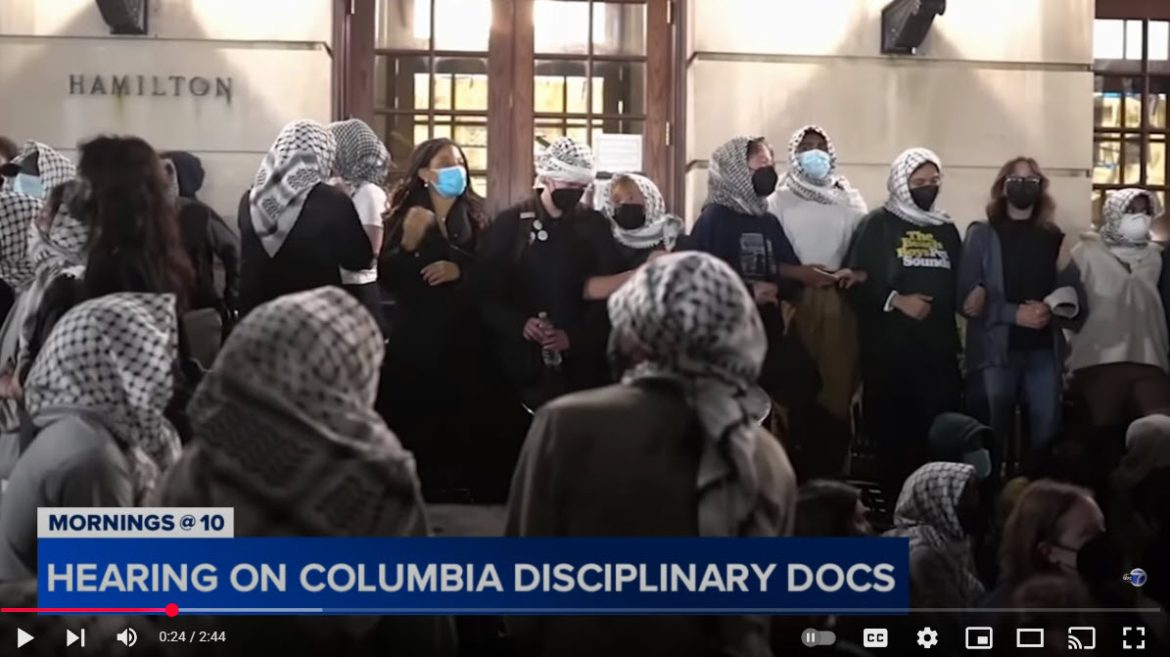A high-stakes legal battle unfolds today in Manhattan federal court as eight Columbia University students seek to block the university from handing over their disciplinary records to the House Committee investigating anti-Semitism on college campuses. The outcome could set a major precedent in the conflict between student privacy rights and congressional oversight amid ongoing tensions over campus protests related to the Israel-Hamas war.
The lawsuit, led by Columbia graduate Mahmoud Khalil, argues that the release of student records would violate federal privacy protections and put students and staff at risk of retaliation. Khalil, a prominent figure in recent pro-Palestinian demonstrations at Columbia, is currently being detained by U.S. immigration authorities. His legal team claims his arrest is politically motivated, and his case has now drawn national attention with the appointment of longtime Trump attorney Alina Habba as interim U.S. Attorney for New Jersey — the state where Khalil’s immigration proceedings have now been moved.
The House Committee on Education and the Workforce, chaired by Republicans, has requested student disciplinary records from 11 campus incidents involving alleged anti-Semitism and disruption, including the highly publicized 2023 occupation of Hamilton Hall. The committee asserts that understanding how Columbia has responded to antisemitic incidents is critical to ensuring campus safety and combating hate. But the students say the request is a political maneuver disguised as oversight, one that violates their rights under the Family Educational Rights and Privacy Act (FERPA).
The federal court hearing today marks the first legal test of whether a congressional committee can compel a private university to turn over internal student records without individual consent. Civil liberties groups are closely watching the case, warning that the precedent could open the door to surveillance of student activism nationwide.
Mahmoud Khalil’s legal team, now including Habba, argues that his detention stems directly from his role in peaceful campus demonstrations and that the House committee’s investigation is being used as a tool to silence dissent. They claim the release of records would endanger not only Khalil, who is not a U.S. citizen, but other international students who could face immigration consequences for participating in protests protected under the First Amendment.
Adding to the legal firestorm is a separate lawsuit filed by Columbia student Yunseo Chung, a legal permanent resident originally from South Korea, who claims that her green card was revoked in retaliation for her involvement in pro-Palestinian protests. Chung alleges that the Trump administration is targeting her free speech, and that she now faces possible deportation. Her suit, also filed in federal court, accuses federal immigration agencies of politically motivated retaliation and constitutional violations.
Chung, who has lived in the U.S. since the age of seven, says she was an active but peaceful participant in student rallies and sit-ins calling for an end to U.S. aid to Israel and demanding Columbia divest from companies linked to Israeli military operations. Her lawyers argue that political expression — especially on a college campus — should not come with the risk of losing one’s legal immigration status.
Columbia University has thus far remained officially neutral in the legal dispute but has stated that it is complying with federal law and congressional requests while protecting student privacy “to the fullest extent possible.” University administrators have faced mounting pressure from both pro-Israel and pro-Palestinian groups as the conflict in Gaza continues to reverberate on college campuses across the United States.
The broader investigation by the House Committee, launched last fall following reports of rising antisemitic incidents at elite universities, has already led to tense hearings and the resignations of several university leaders. Columbia President Minouche Shafik testified earlier this year before Congress, stating that the university condemns antisemitism and all forms of hate but remains committed to free expression.
As today’s federal hearing continues, attorneys for the student plaintiffs argue that the requested disciplinary records contain sensitive personal information and academic details protected under FERPA. They further claim that such information could be used to intimidate or target students based on their political beliefs, particularly those expressing solidarity with Palestinians.
Legal experts say the case presents a constitutional collision point between congressional authority and student privacy, with major implications for how colleges respond to political activism and federal oversight. A decision is not expected immediately, but the judge’s ruling could have far-reaching consequences for universities navigating the fine line between transparency, compliance, and protecting civil liberties.
Source Links:
- Video: Columbia protest lawsuit update – Source 1
- Video: House committee and student privacy – Source 2
- Video: Mahmoud Khalil and legal fallout – Source 3



